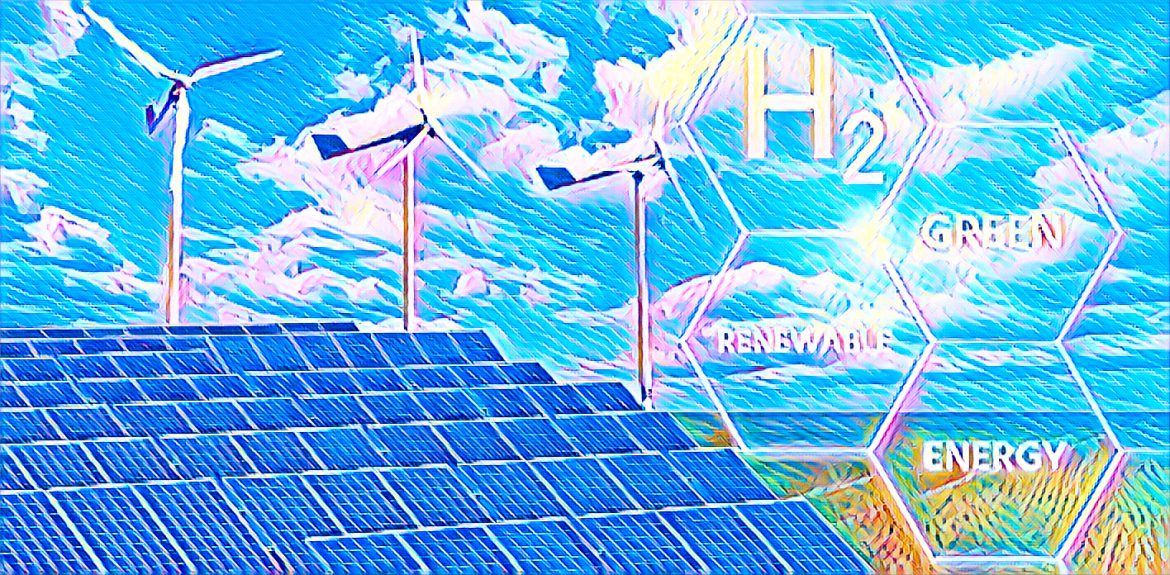Tunisia is taking significant steps toward becoming a green hydrogen exporter to European Union countries with the initiation of the H2 Notos project, a collaborative effort involving TotalEnergies, EREN Groupe, and VERBUND. This project announced through a Memorandum of Understanding this week, focuses on using renewable energy sources to produce green hydrogen, aiming to strengthen Tunisia’s economic and environmental stability ultimately.
The H2 Notos project is set to harness solar and wind power for the operation of electrolysers that will produce hydrogen using desalinated seawater. The project’s ambitious goal is to produce 200,000 tons of green hydrogen annually in its initial phase, with the possibility of increasing production to one million tons per year in southern Tunisia.
Strategically, this hydrogen will be exported to Central Europe via the SoutH2 Corridor—a hydrogen pipeline connecting North Africa to Italy, Austria, and Germany. This corridor is pivotal for the project as it promises a direct route to European markets, which is critical for the viability and success of this venture. The project is anticipated to commence operations around 2030.
David Corchia, CEO of TE H2 (a joint venture formed by TotalEnergies and EREN Groupe), expressed optimism about the project’s impact, noting it as a transformative opportunity for both Europe and Tunisia. He emphasized the potential job creation in Tunisia and the significant supply of green hydrogen to Europe. Additionally, Fatma Thabet Chiboub, Tunisia’s Minister of Industry, Mines, and Energy, highlighted the agreement as a crucial step toward achieving sustainable energy solutions.
Michael Strugl, CEO of VERBUND AG, pointed out the strategic importance of Tunisia in the European green hydrogen strategy, citing the country’s competitive advantages in hydrogen production and its pivotal role in ensuring long-term, scalable supply to Europe.
However, the initiative is not without its critics. The Transnational Institute (TNI), a research and advocacy organization, has raised concerns that the project might prioritize European energy needs over local Tunisian interests. According to TNI, the green hydrogen strategy could lead to significant ecological and social repercussions for Tunisia. They argue that the project would require Tunisia to allocate vast amounts of land and resources for renewable energy production and desalination processes, potentially at the cost of the local environment and society.
TNI’s report indicates that the project would necessitate an expansion of Tunisia’s current power capacities by 15 times, covering over 500,000 hectares, or approximately 3% of Tunisia’s total land area. This expansion would be to accommodate the renewable energy installations needed to produce the requisite hydrogen. Moreover, the water desalination demands of the project are substantial, equating to the annual water consumption of 400,000 Tunisians, in a country already facing significant water scarcity issues.
These critiques highlight a broader debate about the balance between economic development and resource exploitation, particularly in regions like North Africa where environmental resources are precious and often under strain. The TNI report emphasizes the need for Tunisia to consider carefully the long-term impacts of such large-scale energy projects on its environment and communities.
As Tunisia embarks on this ambitious journey to become a key player in the global green hydrogen market, it faces the challenge of aligning its economic aspirations with sustainable practices that safeguard its environmental and social welfare. This venture into green hydrogen production could indeed mark a pivotal shift towards renewable energy in North Africa, potentially setting a precedent for similar initiatives in the region. However, it also necessitates careful planning and international cooperation to ensure that the benefits are broadly shared and sustainable.
Source: ESI Africa



